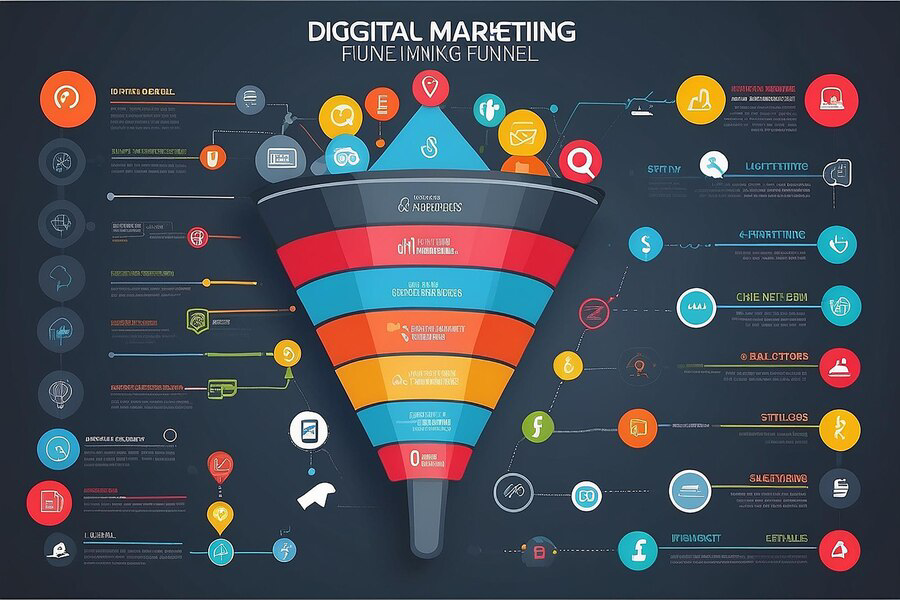222 Capitol Street, Suite 522
Charleston, WV 25301

How SEO Services Impact Website Rankings
In the ever-evolving landscape of digital
marketing, SEO (Search Engine Optimization) stands as a cornerstone for achieving higher visibility and better rankings on search engine results pages (SERPs). Effective SEO services play a pivotal role in shaping the online presence of businesses and organizations. By meticulously optimizing various elements of a website—such as content, keywords, meta tags, and backlinks—SEO professionals aim to enhance a site's relevance and authority in the eyes of search engines like Google, Bing, and Yahoo. The impact of SEO services on website rankings cannot be overstated. Beyond mere visibility, a well-executed SEO strategy can drive organic traffic, improve user experience through faster load times and mobile responsiveness, and increase conversion rates. As search engines continuously refine their algorithms to deliver more accurate and valuable results to users, staying ahead with robust SEO practices becomes not just advantageous, but essential for any business looking to thrive in the competitive digital realm.
Optimizing On-Page Factors for Improved Rankings
Optimizing on-page factors is crucial for enhancing the visibility and ranking of a website in search engine results pages (SERPs). These factors, ranging from content quality to technical optimizations, directly influence how search engines perceive and rank web pages. By focusing on these elements, webmasters and digital marketers can strategically improve their site's organic search performance and attract more relevant traffic. Here are eight essential on-page factors and how to optimize them for improved rankings:
High-Quality Content
Content remains king in the realm of SEO. Creating informative, engaging, and relevant content is not only vital for attracting and retaining visitors but also for signaling authority and relevance to search engines. Ensure your content is well-researched, structured with headings and subheadings, incorporates relevant keywords naturally, and provides value to the reader.
Keyword Optimization
Effective keyword optimization involves strategic placement of target keywords throughout your content, including in titles, meta descriptions, headers, and body text. However, avoid keyword stuffing, which can lead to penalties. Focus on using keywords naturally and in context to enhance readability and relevance.
Meta Tags
Meta tags, such as title tags and meta descriptions, are crucial for both user experience and SEO. Title tags should accurately describe the content of the page and include primary keywords near the beginning. Meta descriptions should be compelling, informative, and encourage users to click through to your website from the search results.
URL Structure
A well-structured URL is essential for both user experience and search engine optimization (SEO). By incorporating relevant keywords into the URL slug, you not only make it easier for users to understand what the page is about at a glance but also help search engines determine the content's relevance to specific queries. Keeping the URL concise and readable further enhances usability, making it easier to share and remember. A clean URL structure not only improves click-through rates but also signals to search engines the semantic context of your content, potentially boosting its visibility in search results related to those keywords.
Header Tags
Header tags, such as H1, H2, etc., play a crucial role in organizing content on web pages by indicating the hierarchy and importance of information. The primary title of a page should be marked with a single H1 tag, encapsulating the main topic or theme of the page for both users and search engines. Subsequent sections or subtopics can then be denoted using H2 to H6 tags, each representing a decreasing level of importance or a more detailed aspect of the
content.

The Core Elements of Effective SEO Strategies
Effective SEO strategies are fundamental for any website looking to increase its online visibility and attract relevant traffic. SEO, or Search Engine Optimization, encompasses a range of techniques and practices aimed at improving a site's rankings in search engine results pages (SERPs). By understanding and implementing these core elements, businesses and digital marketers can achieve sustainable growth and success online. Here are eight essential elements of effective SEO strategies:
Keyword Research and Analysis
Keyword research forms the foundation of every successful SEO strategy. It involves identifying relevant keywords and phrases that potential customers use when searching for products or services related to your business. Tools like Google Keyword Planner, SEMrush, and Ahrefs can help identify high-volume keywords with manageable competition. Effective keyword analysis also involves understanding search intent and selecting keywords that align with your content and business goals.
Content Development and Optimization
Content remains a critical factor in SEO success. High-quality, relevant, and engaging content not only attracts visitors but also helps establish authority and credibility with search engines. Focus on creating original content that answers user queries, incorporates targeted keywords naturally, and provides value to your audience. Regularly updating and optimizing content based on performance metrics and keyword insights can further enhance your SEO efforts.
On-Page SEO
On-page SEO refers to optimizing individual web pages to improve their search engine rankings and earn organic traffic. This includes optimizing meta tags (title tags, meta descriptions), using proper header tags (H1, H2, etc.), incorporating keywords strategically, optimizing images, improving page load speed, and ensuring mobile-friendliness. On-page SEO practices ensure that search engines can crawl and understand your content, improving your chances of ranking for relevant queries.
Technical SEO
Technical SEO focuses on optimizing the infrastructure of your website to ensure it can be crawled and indexed efficiently by search engines. This includes optimizing site structure, improving URL structure, implementing HTTPS for security, fixing crawl errors, creating XML sitemaps, and optimizing robots.txt file. Technical SEO ensures that search engines can access and interpret your site's content effectively, leading to better visibility and rankings.
Link Building
Link building remains a crucial off-page SEO technique that involves acquiring hyperlinks from other websites to your own. High-quality backlinks from authoritative sites signal to search engines that your content is trustworthy and relevant. Focus on earning natural backlinks through content marketing, guest blogging, influencer collaborations, and partnerships. Avoid spammy link-building tactics that can lead to penalties and focus on quality over quantity.
Measuring Success: Key Metrics to Track for SEO Performance
Tracking key metrics is essential for evaluating the effectiveness of your SEO efforts. By monitoring these metrics, you can gauge progress, identify areas for improvement, and demonstrate the impact of SEO on your business's online presence.
- Organic Traffic: Measure the volume of visitors coming to your site through organic search results. Increasing organic traffic indicates improved visibility and ranking performance.
- Keyword Rankings: Track the positions of targeted keywords in search engine results. Rising rankings for important keywords signify improved SEO effectiveness.
- Backlink Profile: Monitor the quantity and quality of backlinks pointing to your site. A diverse and authoritative backlink profile enhances your site's authority and SEO performance.
- Conversion Rate: Assess the percentage of visitors who complete desired actions on your site, such as making a purchase or filling out a contact form. Improved conversion rates indicate that your SEO efforts are attracting relevant traffic.
Conclusion
The impact of SEO services on website rankings cannot be overstated. By optimizing various elements such as keywords, content quality, backlinks, and site structure, businesses like yours can significantly improve their visibility and authority online. This, in turn, leads to higher organic search rankings on platforms like Google, driving more targeted traffic and ultimately increasing conversions and revenue.
At Ideation Digital Marketing, located in Charleston, WV, we specialize in delivering tailored SEO strategies that align with your business goals. Whether you're looking to enhance local visibility or expand your reach globally, our expert team is committed to helping you achieve sustainable growth through effective SEO practices. For more information on how our services can elevate your online presence, contact us today at (304) 814-2445. Let's work together to unlock your website's full potential and propel your business towards greater success in the digital landscape.

Main Office
222 Capitol Street, Suite 522
Charleston, WV 25301
other offices
48 1/2 Second Ave, Williamson, WV 25661
20 Clinch Mountain Ave, Lebanon, VA 24266,
Contact
DIGITAL MARKETING SERVICES
All Rights Reserved | Ideation Digital
Private Policy
All Rights Reserved | Ideation Digital











